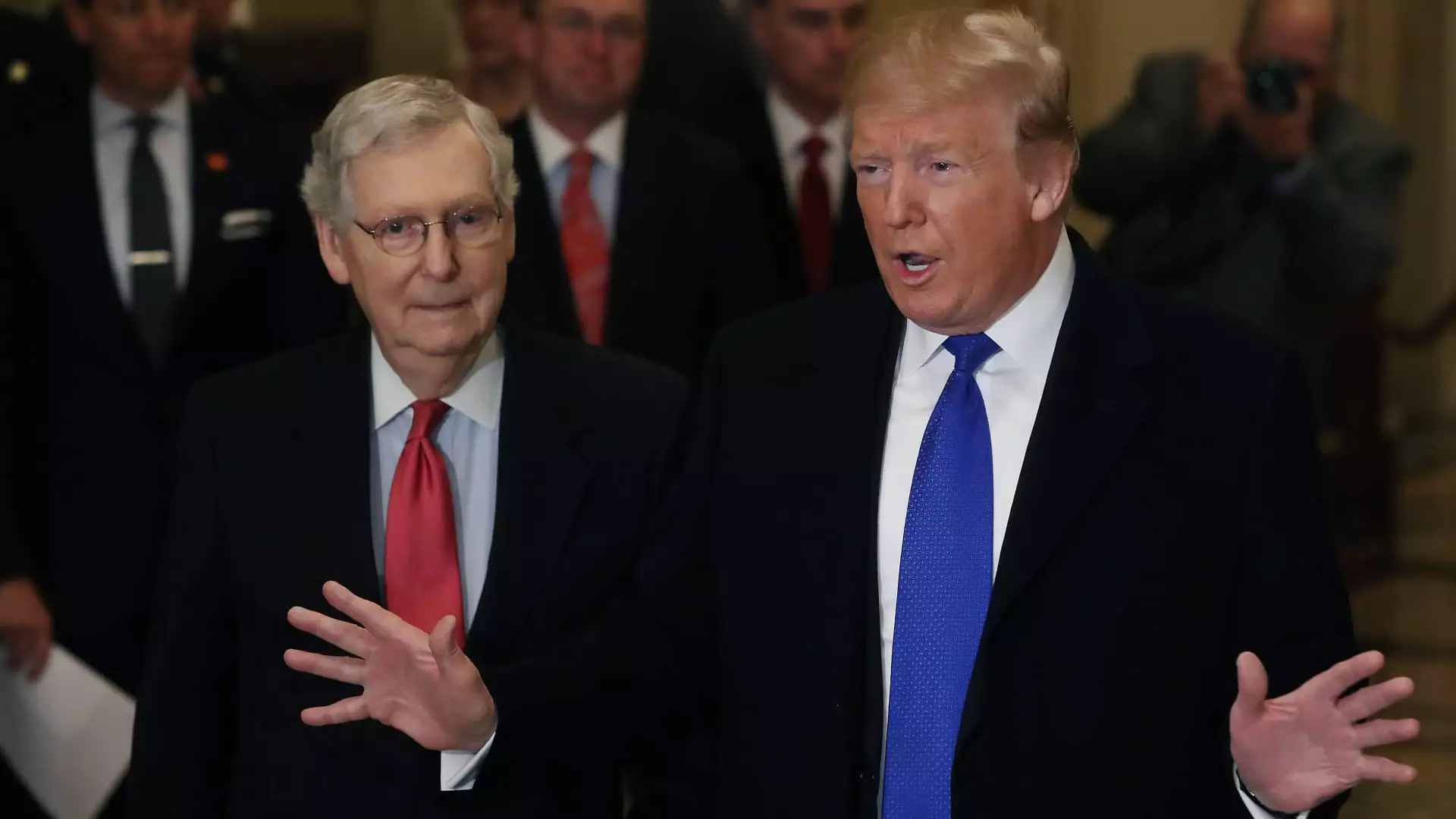In the realm of U.S. economic policy, few topics have ignited as much debate as tariffs. Recently, Republican Senate leader Mitch McConnell has voiced his opposition to the aggressive tariff measures proposed by former President Donald Trump. In an opinion piece published in the Courier-Journal, McConnell articulated concerns that roaring trade wars could substantially inflate costs for American consumers and businesses. His critique signals a significant stance from a senior Republican figure willing to confront the contentious economic strategies associated with the Trump administration.
McConnell’s apprehension stems from the belief that blanket tariffs—particularly against major trading partners such as Canada, Mexico, and China—promote a protectionist environment detrimental to the U.S. economy. His perspective underscores an essential truth: such measures may lead to retaliatory actions from these countries, exacerbating the very issues they intend to solve. For McConnell, protectionism poses a direct threat to Kentucky’s economy, a state notably reliant on agriculture and manufacturing industries intertwined with global supply chains.
With approximately 75,000 farms in Kentucky dependent on international markets, McConnell explained how punitive tariffs could disrupt these critical agricultural cross-border transactions. Furthermore, the state’s automotive sector, a linchpin of its economy, could face complications, as many manufacturers rely on imported components to remain competitive. As McConnell warns, the cascading effect of tariffs merely increases production costs, ultimately transferred to consumers in the form of heightened prices.
One of the standout examples McConnell highlighted is the bourbon industry, which plays an iconic role in Kentucky’s cultural and economic identity. The state produces an overwhelming 95% of the global bourbon supply, and prior statistics show bourbon accounted for a staggering $500 million in exports in the previous year. Tariffs on steel and aluminum, and the potential for additional levies on bourbon exports, threaten this lucrative industry’s financial stability. The repercussions could ripple through local economies, impacting everything from distilling jobs to tourism.
McConnell’s criticisms come at a significant moment—he recently stepped down from Senate leadership after nearly 20 years and has experienced a strained relationship with Trump following the fallout over the 2020 Presidential election. Despite ongoing tensions, he continues to endorse Trump, illustrating the complexities of political alliances even amid substantial disagreements on economic policies. This duality displays the balancing act many Republican leaders face as they navigate the intersection of party loyalty and economic pragmatism.
Mitch McConnell’s vocal discontent regarding Trump’s tariff strategies reflects deeper concerns over the economic implications of protectionist policies. As the conversation around tariffs evolves, it is crucial for lawmakers to weigh both the potential benefits and significant risks, especially for states like Kentucky that depend on exports and international trade. The economic landscape of the United States is intricate, and decisions taken today will undoubtedly shape its future prosperity. Emphasizing collaboration and pragmatic solutions might prove essential in navigating these turbulent waters effectively.


Leave a Reply